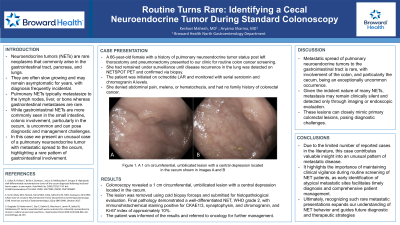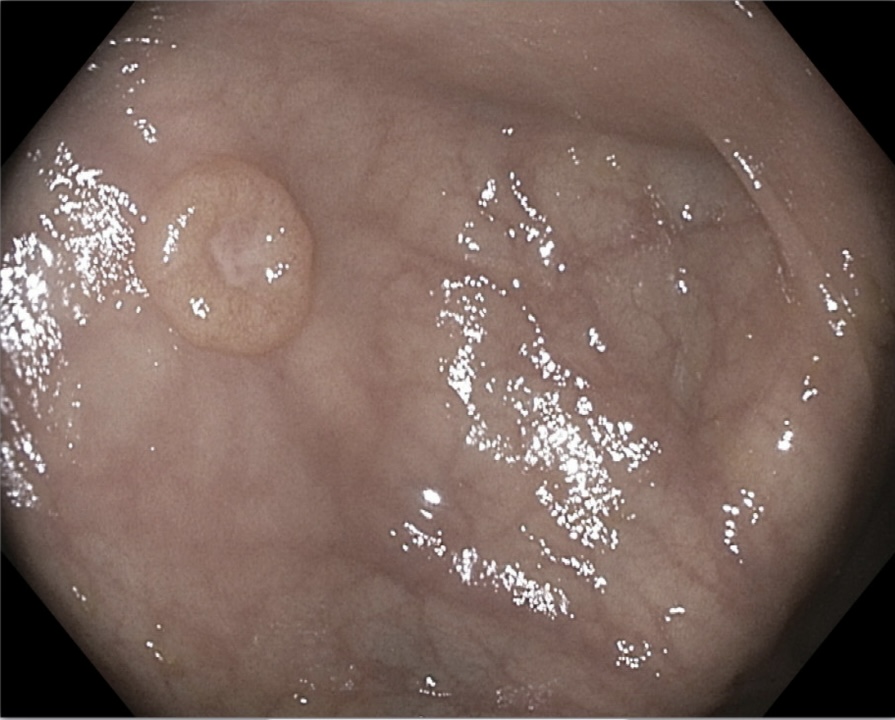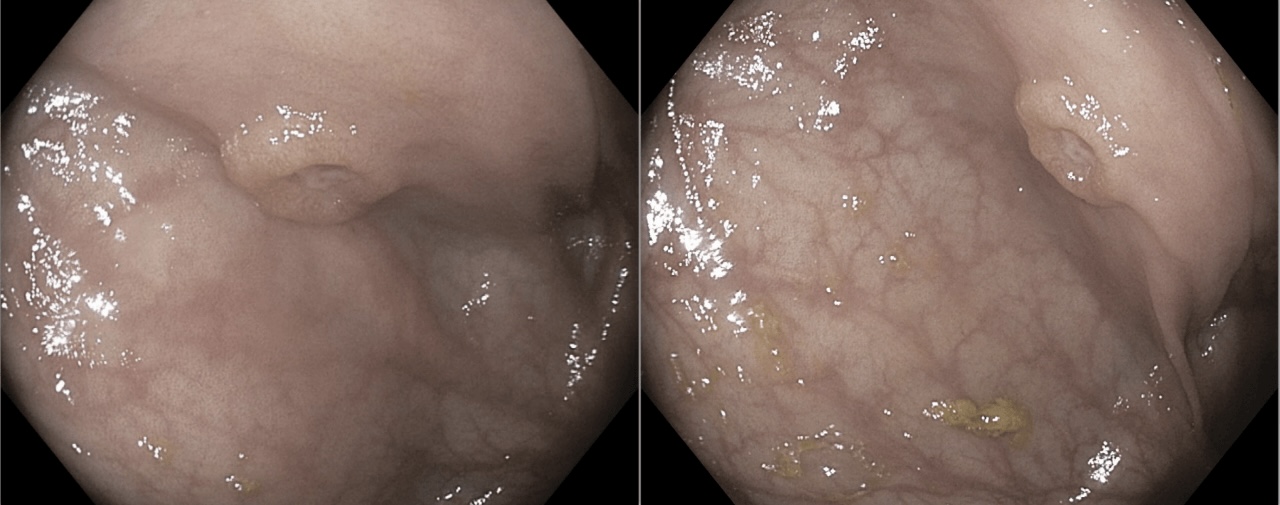Monday Poster Session
Category: Colon
P2522 - Routine Turns Rare: Identifying a Cecal Neuroendocrine Tumor During Standard Colonoscopy


Keshavi Mahesh, MD
Broward Health North
Pompano Beach, FL
Presenting Author(s)
1Broward Health North, Pompano Beach, FL; 2Broward Health North, Deerfield Beach, FL
Introduction: Neuroendocrine tumors (NETs) are rare neoplasms that commonly arise in the gastrointestinal tract, pancreas, and lungs. They are often slow growing and may remain asymptomatic for years, with diagnosis frequently incidental. Pulmonary NETs typically metastasize to the lymph nodes, liver, or bone whereas gastrointestinal metastases are rare. While gastrointestinal NETs are more commonly seen in the small intestine, colonic involvement, particularly in the cecum, is uncommon and can pose diagnostic and management challenges. In this case we present an unusual case of a pulmonary neuroendocrine tumor with metastatic spread to the cecum, highlighting a rare pattern of gastrointestinal involvement.
Case Description/Methods:
A 66-year-old female with a history of pulmonary NET status post left thoracotomy and pneumonectomy presented to our clinic for routine colon cancer screening. She had remained under surveillance until disease recurrence in the lung was detected on NETSPOT PET and confirmed via biopsy. The patient was initiated on octreotide LAR and monitored with serial serotonin and chromogranin A levels. She denied abdominal pain, melena, or hematochezia, and had no family history of colorectal cancer. Colonoscopy revealed a 1 cm circumferential, umbilicated lesion with a central depression located in the cecum. The lesion was removed using cold biopsy forceps and submitted for histopathological evaluation. Final pathology demonstrated a well-differentiated NET, WHO grade 2, with immunohistochemical staining positive for CKAE1/3, synaptophysin, and chromogranin, and Ki-67 index of approximately 10%. The patient was informed of the results and referred to oncology for further management.
Discussion:
Metastatic spread of pulmonary neuroendocrine tumors to the gastrointestinal tract is rare, with involvement of the colon, and particularly the cecum, being an exceptionally uncommon occurrence. Given the indolent nature of many NETs, metastasis may remain clinically silent and detected only through imaging or endoscopic evaluation. These lesions can closely mimic primary colorectal lesions, posing diagnostic challenges. Due to the limited number of reported cases in the literature, this case contributes valuable insight into an unusual pattern of metastatic disease. It highlights the importance of maintaining clinical vigilance during routine screening of NET patients, as early identification of atypical metastatic sites facilitates timely diagnosis and comprehensive patient management.


Disclosures:
Keshavi Mahesh, MD1, Aryama Sharma, MD2. P2522 - Routine Turns Rare: Identifying a Cecal Neuroendocrine Tumor During Standard Colonoscopy, ACG 2025 Annual Scientific Meeting Abstracts. Phoenix, AZ: American College of Gastroenterology.
